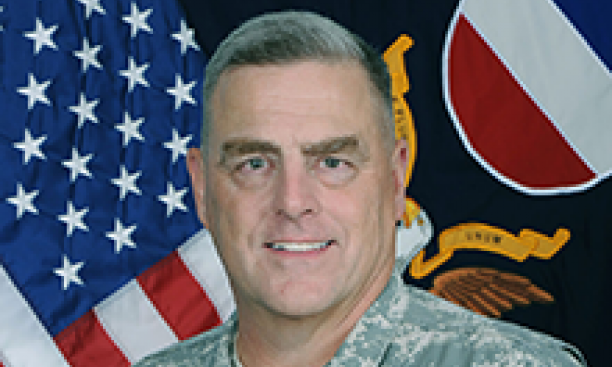

Four-star Gen. MARK MILLEY ’80 is President Barack Obama’s nominee to become the next Army chief of staff. Milley, a Princeton ROTC graduate and 35-year veteran, told PAW last year that while he wanted to serve his country, he hadn’t intended to make a career in the military. “But then I really liked it,” he said. “I got this sense of commitment and of being involved in something that had a sense of purpose.”
The Obama administration called on another Princetonian earlier in the week when it named professor of computer science and public affairs EDWARD FELTEN as deputy U.S. chief technology officer, a post in the Office of Science and Technology Policy. He will take a leave of absence from the University, as he did in 2011-12 to serve as the chief technologist of the Federal Trade Commission. The Washington Post called Felten “one of the tech world’s most valuable players.”
LORI DICKERSON FOUCHÉ ’91, chief executive of Prudential Insurance Group, sets a high bar for managers in her company. “I expect my leaders to listen,” she told The New York Times in an interview for the Corner Office column. “I expect them to ask questions. I expect them to understand what’s going on. I am somewhat infamous for saying, ‘So how’s it going?’ And they’ll say, ‘Great.’ Then I’ll say, ‘How do you know?’”
Harvard appointed FRANCIS J. DOYLE III ’85 as its new dean of engineering May 14. Doyle, whose research combines engineering and biological systems, previously served as the associate dean for research at the University of California, Santa Barbara.
Princeton Plasma Physics Laboratory scientist LUIS DELGADO-APARICIO *02 received a five-year, $2.6 million Early Career Research award from the Department of Energy to fund his research, which aims to overcome a major barrier in the development of fusion energy.
WILLIAM ZINSSER ’44, a writer and editor best known for his book On Writing Well, died May 12 at age 92. Zinsser taught at Yale, wrote 19 books, and held several editing posts in a career that spanned seven decades. A New York Times obituary summarized his advice to writers: “Write clearly. Guard the message with your life. Avoid jargon and big words. Use active verbs. Make the reader think you enjoyed writing the piece.”
